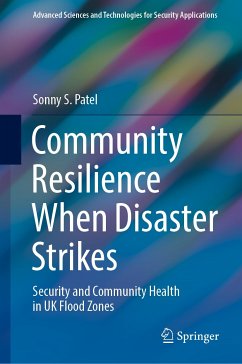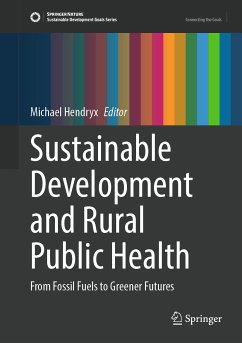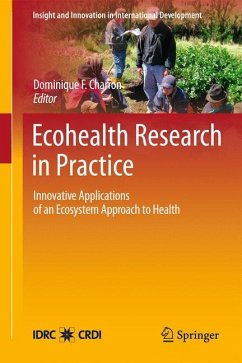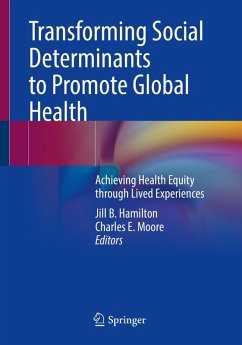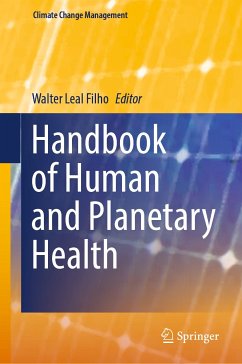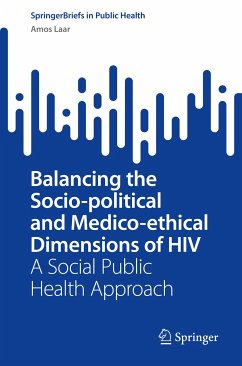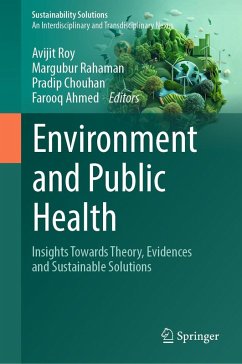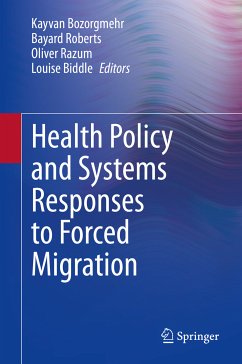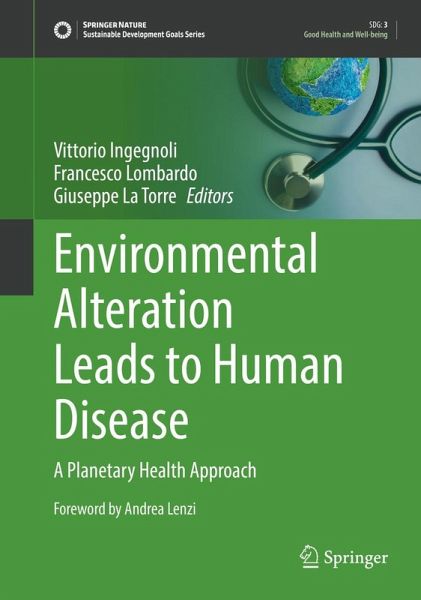
Environmental Alteration Leads to Human Disease (eBook, PDF)
A Planetary Health Approach
Redaktion: Ingegnoli, Vittorio; La Torre, Giuseppe; Lombardo, Francesco
Versandkostenfrei!
Sofort per Download lieferbar
80,95 €
inkl. MwSt.
Weitere Ausgaben:

PAYBACK Punkte
40 °P sammeln!
This book aims to explore the impact of human alterations of Earth's ecological systems on human health. Human activities are producing fundamental biophysical changes faster than ever before in the history of our species, which are accompanied by dangerous health effects. Drawing on advanced ecological principles, the book demonstrates the importance of using systemic medicine to study the effects of ecological alterations on human health.Planetary Health is an interdisciplinary field, but first of all it must be systemic and it needs a preferential relationship between Ecology and Medicine. ...
This book aims to explore the impact of human alterations of Earth's ecological systems on human health. Human activities are producing fundamental biophysical changes faster than ever before in the history of our species, which are accompanied by dangerous health effects. Drawing on advanced ecological principles, the book demonstrates the importance of using systemic medicine to study the effects of ecological alterations on human health.
Planetary Health is an interdisciplinary field, but first of all it must be systemic and it needs a preferential relationship between Ecology and Medicine. This relation is to be upgrading, because today both ecology and medicine pursue few systemic characters and few correct interrelations. We need to refer to new principles and methods sustained by the most advanced fields, as Landscape Bionomics and Systemic Medicine. Thus, we will be able to better discover environmental syndromes and their consequences on human health. Environmentaltransformations proposed by PHA (from biodiversity shifts to climate change) do not consider bionomic dysfunctions which can menace human health. On the contrary, finding advanced diagnostic criteria in landscape syndromes can strongly help to find the effects on human well-being. The passage from sick care to health care can't avoid the mentioned upgrading.
Planetary Health is an interdisciplinary field, but first of all it must be systemic and it needs a preferential relationship between Ecology and Medicine. This relation is to be upgrading, because today both ecology and medicine pursue few systemic characters and few correct interrelations. We need to refer to new principles and methods sustained by the most advanced fields, as Landscape Bionomics and Systemic Medicine. Thus, we will be able to better discover environmental syndromes and their consequences on human health. Environmentaltransformations proposed by PHA (from biodiversity shifts to climate change) do not consider bionomic dysfunctions which can menace human health. On the contrary, finding advanced diagnostic criteria in landscape syndromes can strongly help to find the effects on human well-being. The passage from sick care to health care can't avoid the mentioned upgrading.
Dieser Download kann aus rechtlichen Gründen nur mit Rechnungsadresse in A, B, BG, CY, CZ, D, DK, EW, E, FIN, F, GR, HR, H, IRL, I, LT, L, LR, M, NL, PL, P, R, S, SLO, SK ausgeliefert werden.



